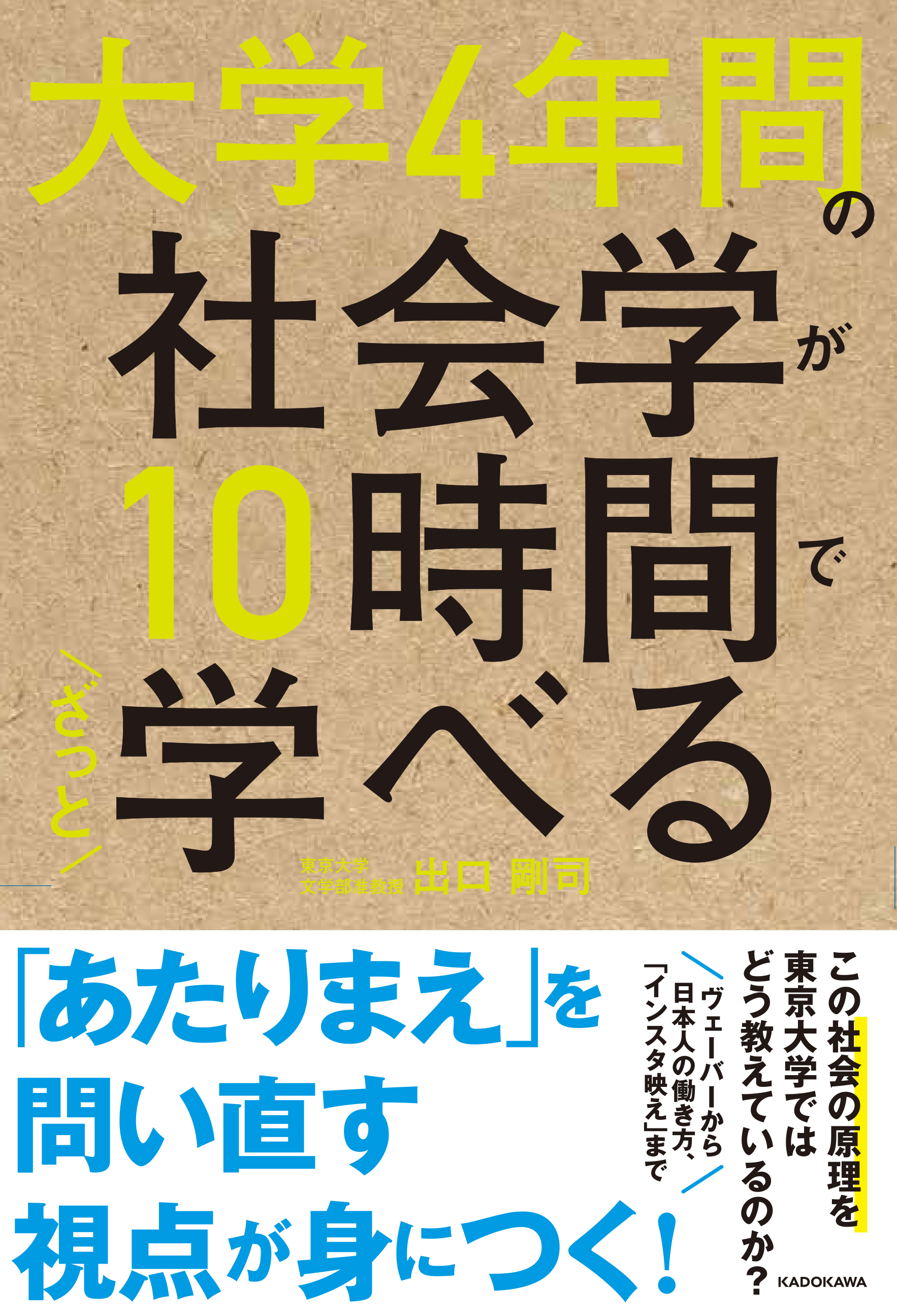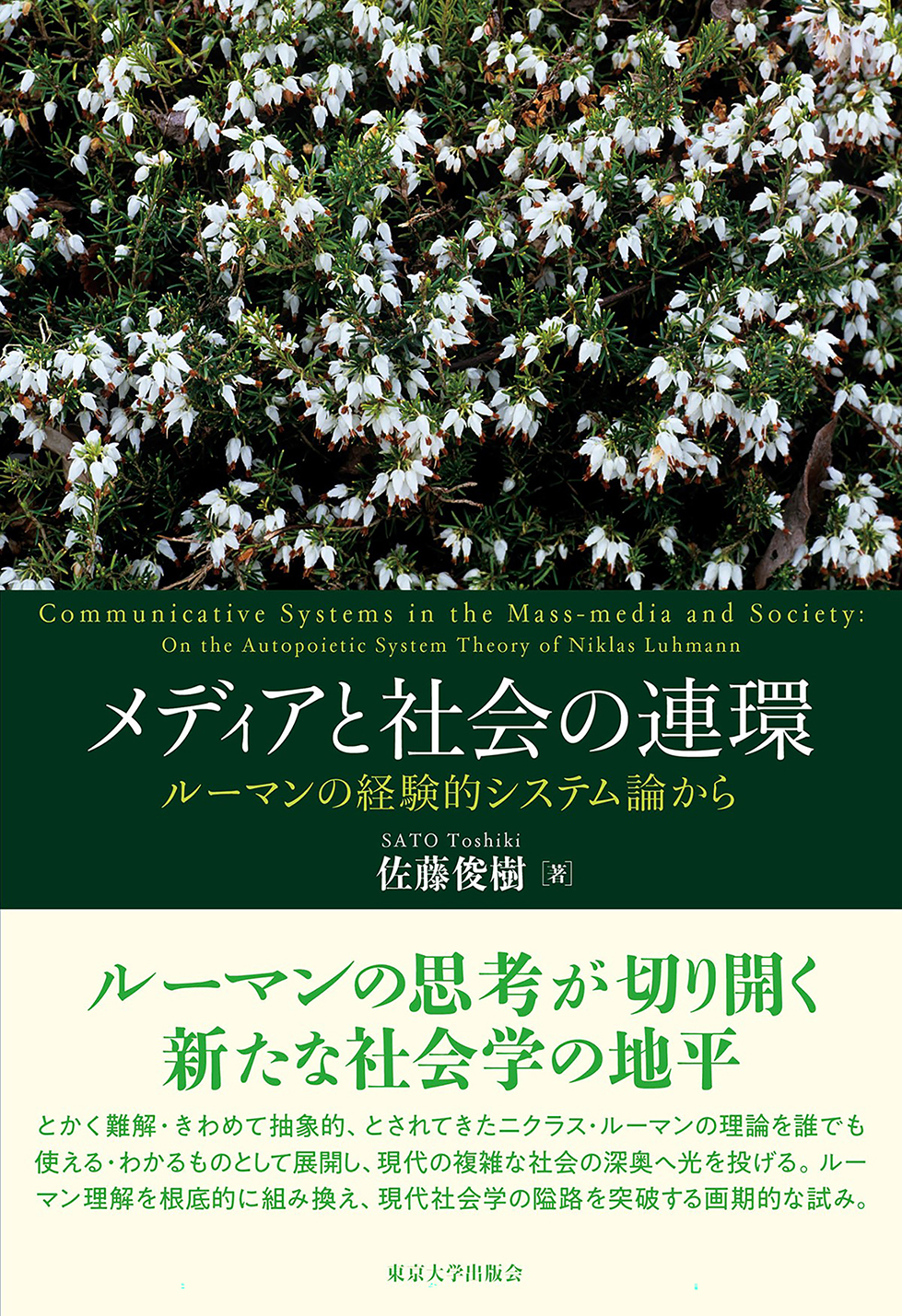
Title
Daigaku Yo-Nenkan no Shakaigaku ga 10-jikan de Zatto Manaberu (Learn Four Years of University-level Sociology in 10 Hours)
Size
232 pages, 127x188mm
Language
Japanese
Released
February 01, 2019
ISBN
9784046019905
Published by
KADOKAWA
Book Info
See Book Availability at Library
Daigaku Yo-Nenkan no Shakaigaku ga 10-jikan de Zatto Manaberu
Japanese Page
What sort of discipline is sociology? While the obvious answer would be that sociology is the study of society, it is rather more difficult to picture precisely what that entails. This is because Society is an elusive thing, like air. It is hard to imagine that there are many people who do not understand what the subject of research is in other social sciences such as economics and politics. In comparison, the concept of ‘society’ is just too vast and too vague.
And yet, the feature that distinguishes humanity from animals is that we construct and live within “societies.” Certainly, ants and sheep form and live in groups, however, this is nothing more than individuals creating mere “herds.” As humans, the way we feel about things, think about things, our communication with others and even the language that supports complex thought is created within “society,” and we learn and repeat “society” within “society” from the day we are born until the day we die, continually building it anew. Even if one is alone, one cannot escape the power of “society.” “Society” is like air; we are unknowingly captured by it and occasionally overwhelmed by it, feeling the difficulty of living. But then, society forms the fabric of our existence. However, the crux of the problem is that ‘society’ like ‘air’ is intangible, it cannot be seen nor touched. Sociology is the science of “visualizing” that air and untangling its mechanisms.
This book consists of five parts: Part I addresses sociological theory, and the final part relates to the history of sociology. It is possible to learn about the fundamental approaches and history of sociology from these two parts. The central Parts II to IV expands on the themes ranging from one’s familiar daily world to the everyday and foreign non-everyday world. Part II examines our families and local communities that constitute the settings of our lives, while Part III considers how we work through the lens of industry and labor. Part IV discusses areas outside of the everyday—consumption, religion, politics and international society. If the reader proceeds through the book from the beginning, they will become well acquainted with sociological ways of thinking, which they can use as a premise to depart from the familiar world and understand the societal mechanisms that lie outside of daily life and control the everyday from the outside. Finally, they can espy the great history of sociology. In writing this book, a particular endeavor has been for people “to be able to read it while standing.” Any reader who has got hold of this book is probably hoping it will serve as a guide to understanding society and sociology. The book aims to satisfy readers’ curiosity about why society is the way it is, and what sort of discipline sociology is.
A basic reading guide is provided at the end of the book for readers who prefer an in-depth study of sociology. This book is recommended to people who are contemplating about studying sociology, people who are interested but unclear about sociology, people who have already studied sociology but would like to revisit their studies, and finally people who want to experience “society” in a different way to how they currently live it.
(Written by DEGUCHI Takeshi, Associate Professor, Graduate School of Humanities and Sociology / 2020)



 Find a book
Find a book





